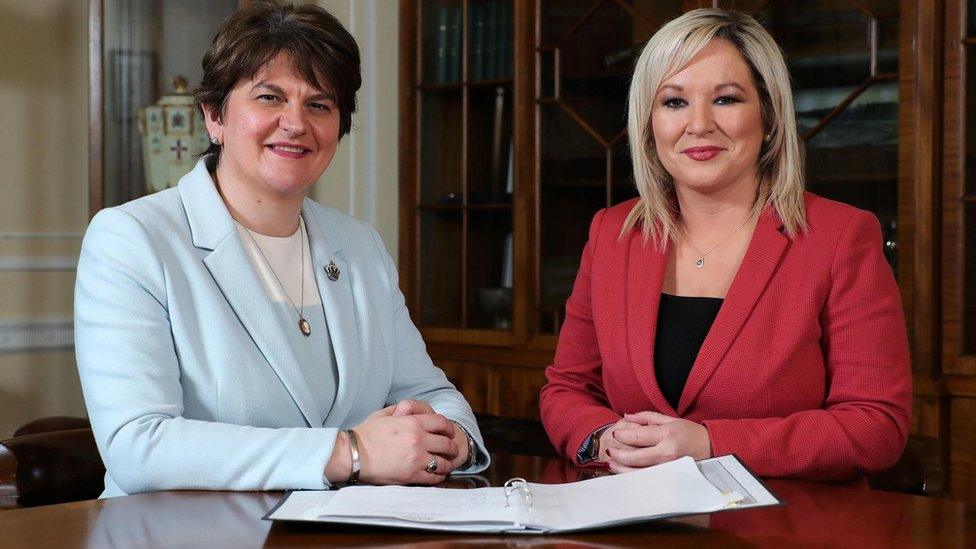Stormont deal: The big issues facing Northern Ireland's new ministers
- Published
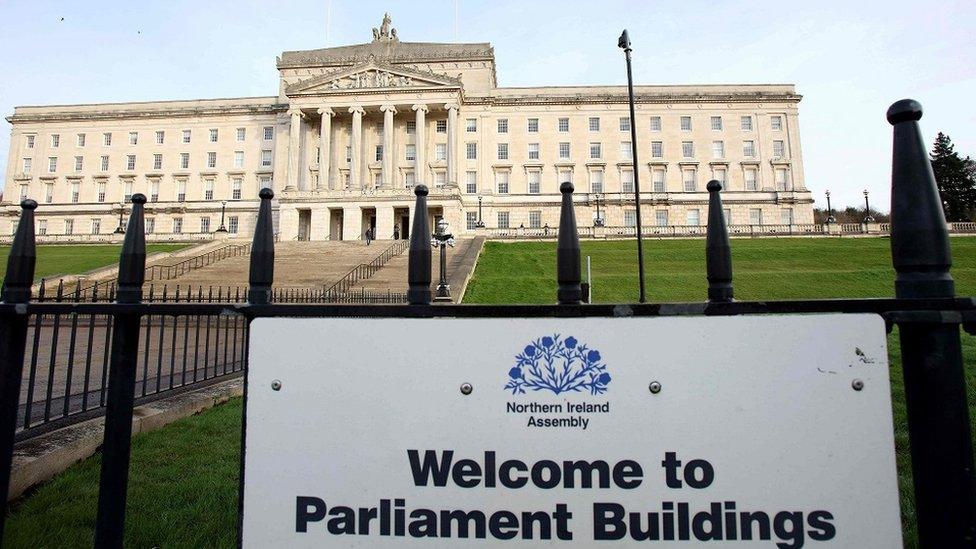
It's official - Stormont is back. But after three years on ice, there's plenty of work to be done.
For ministers, freshly appointed to the restored Northern Ireland Executive, there will be a number of urgent issues to tackle.
Some of them have experience of leading a demanding department, while others are new to the executive table.
Either way, all have plenty to do in the coming weeks and months.
With the executive set to get back to work this week, BBC News NI looks at the big problems facing each minister in their early days in the job.

Finance
by John Campbell, BBC News NI economics and business editor
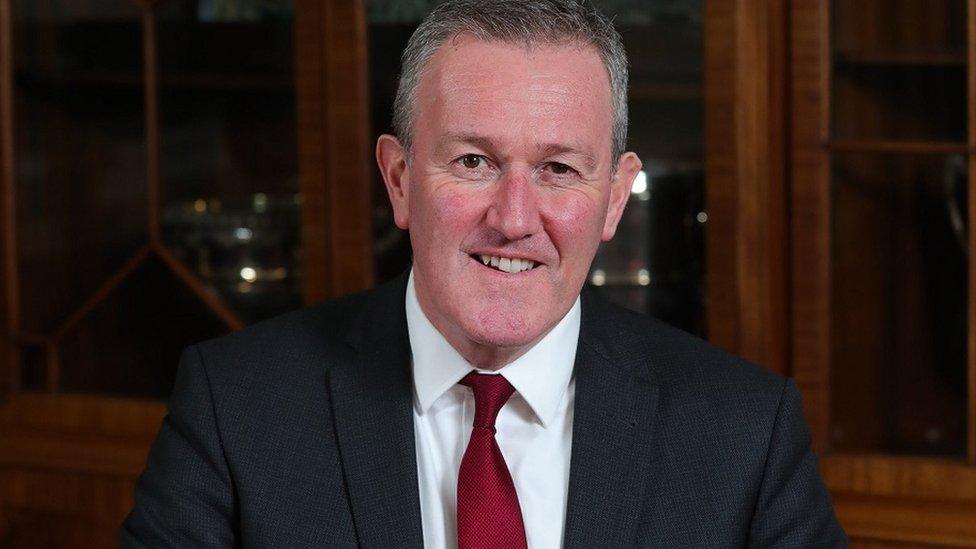
Conor Murphy served as an executive minister for four years until 2011
The minister: Conor Murphy
Who he is: Sinn Féin MLA who served as minister for regional development (now minister for infrastructure) from 2007 to 2011
Issues in his in-tray: Conor Murphy will have an immediate decision to make on business rates - a property tax paid by businesses.
He will have to set the regional rate, which alongside decisions made by local councils, will determine how much businesses pay in the next financial year.
He will also have to deal with the aftermath of a rates revaluation exercise which means that many hotels and pubs are facing a steep rise in rates bills.
He can expect heavy lobbying from that sector to introduce something like a transitional arrangement.
Even before devolution was suspended, Stormont lurched from budget to budget with little long term planning.
The new deal promises multi-year budgeting and it will be Mr Murphy's job to lead that process.

Education
by Robbie Meredith, BBC News NI education correspondent
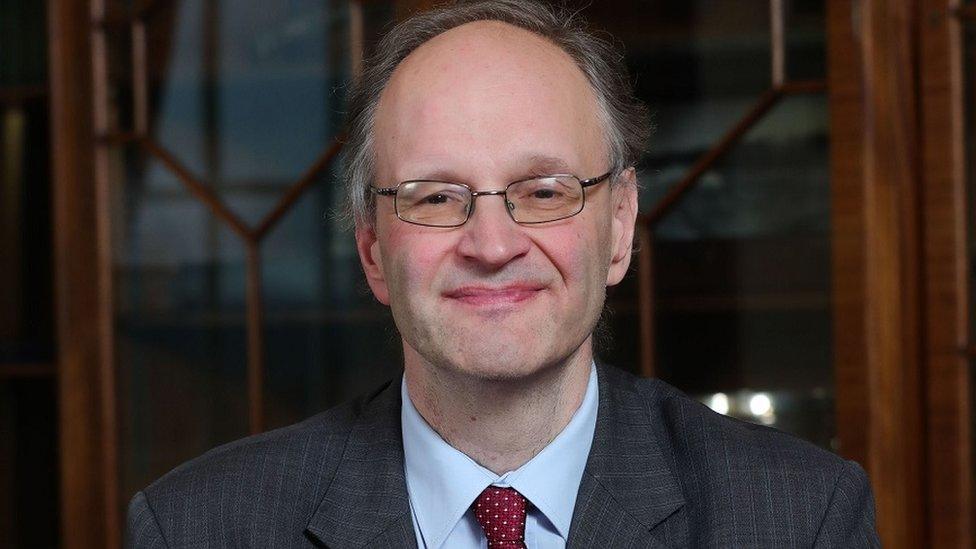
Peter Weir previously served as education minister from 2016 until Stormont's collapse
The minister: Peter Weir
Who he is: DUP MLA who served as education minister from May 2016 until January 2017
Issues in his in-tray: Peter Weir will be familiar with many of the problems facing education as he had a nine-month spell as minister before the executive collapsed in 2017.
He will want to secure more money to settle the long-running teachers' pay dispute and industrial action, and to help hundreds of financially-squeezed schools.
He'll also have to oversee promised reforms of the way schools are funded, of support for children with special educational needs and those from disadvantaged backgrounds, and of the system itself.
The deal said the way education is run at present - with a range of sectors and school types - is "not sustainable" and it promises a "fundamental review" as a basis for change.
Key to Mr Weir's plans will be actions of his party colleague Diane Dodds.
As economy minister, she has responsibility for further and higher education.
Leaders there want more sustainable funding and universities have also argued that the cap on the number of local students they can recruit should be lifted.
Mrs Dodds will also have to turn her attention to Ulster University's Belfast campus - which has gone about £100m over budget - and the promised expansion of higher education in the north west.

Justice
by Julian O'Neill, BBC News NI home affairs correspondent
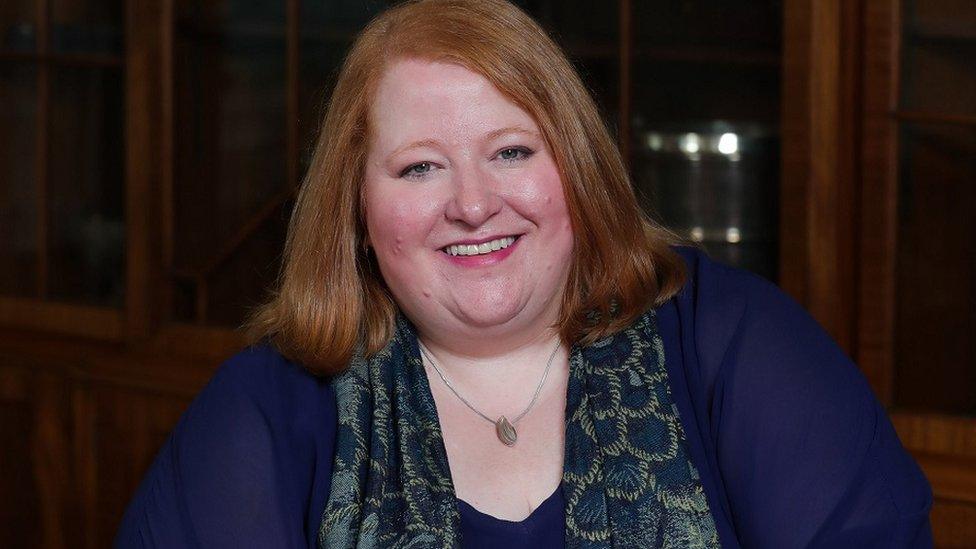
Naomi Long, Alliance Party leader, is leading a Stormont department for the first time
The minister: Naomi Long
Who she is: Alliance Party leader, former MP and MEP, who is taking up her first ministerial role in the Northern Ireland Executive
Issues in her in-tray: Within hours of becoming justice minister, Naomi Long met Police Service of Northern Ireland (PSNI) Chief Constable Simon Byrne, with funding for 600 extra police officers looking already a done deal.
The PSNI accounts for most of her £1bn budget.
She has a stack of other issues in the criminal justice sphere awaiting attention.
The court system progresses cases far too slowly and she will be looking at making improvements.
There are also changes proposed around how Northern Ireland deals with serious sex offence cases and there have been calls to implement legislation to go after criminal assets, perhaps even a new body solely dedicated to the work.
Tackling paramilitarism was pledged in the deal that brought Stormont back and Mrs Long will want to review non-policing initiatives already in place and give new focus to what is a priority area for the incoming executive.

Health
by Marie-Louise Connolly, BBC News NI health correspondent
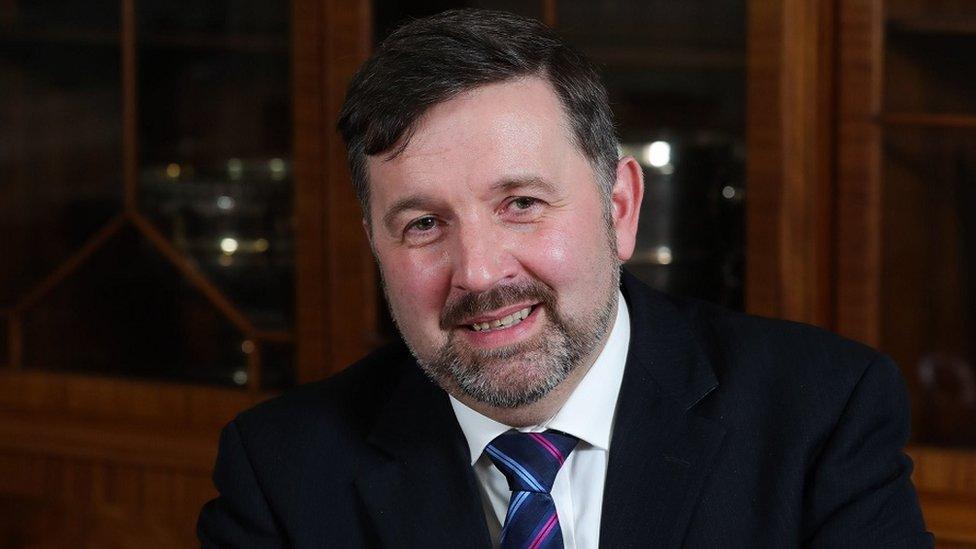
Robin Swann stood down as Ulster Unionist Party leader last October
The minister: Robin Swann
Who he is: Former Ulster Unionist leader taking up a role as a minister for the first time
Issues in his in-tray: While there is much to be done in the Department for Health and Social Care, at least for its new minister there is an obvious start.
Almost immediately he must get to grips with the health workers' dispute and bring about pay parity. To that end he has already agreed to meet the health unions this week.
He must also secure processes that will ensure safer staffing levels for those to work within and help create a better environment patients can be cared in.
That cannot be achieved overnight, far from it, but pay parity can.
The health service needs sustainability and workers need to feel valued and that loss of earnings have not been in vain.
A new action plan to tackle waiting lists has been promised and a commitment made. That requires significant investment, the size of which has not been seen before and a buy-in from the independent sector.
Northern Ireland needs to see a mental health action plan within two months and a mental health strategy by the end of year. People needing these facilities don't have time to waste.
Mr Swann needs to cut through the red tape to put something in place immediately. It needs to cover schools, communities and what happens inside hospitals.
Delivering reforms on health and social care, as set out in Bengoa, needs to be picked up again. Those plans are already there.

Economy
by John Campbell
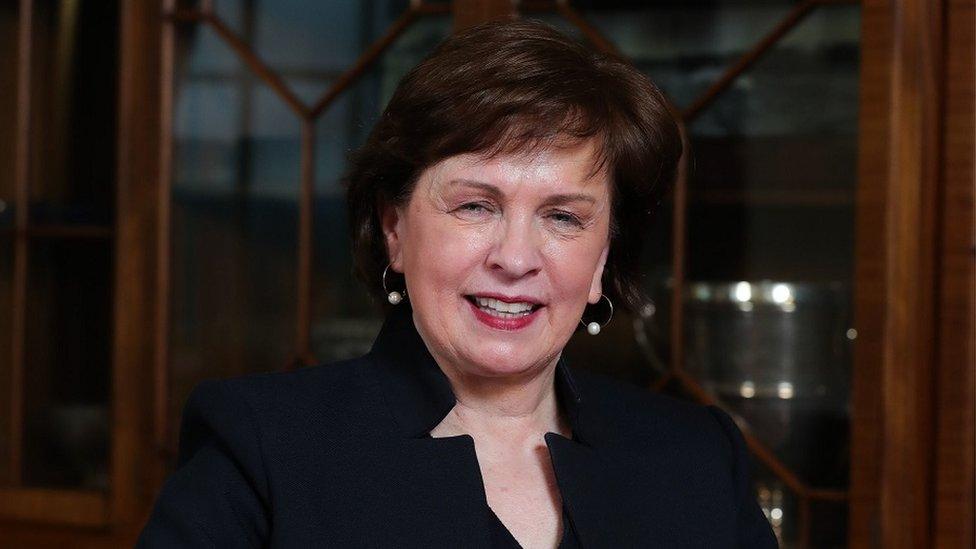
Diane Dodds is now a minister after returning to the assembly chamber for the first time since losing her seat in 2007
The minister: Diane Dodds
Who she is: Former DUP MEP who is taking up a role as a minister after returning to the assembly for the first time since 2007
Issues in her in-tray: In the absence of ministers it was this department which was at the forefront of trying to give Stormont some influence on Brexit.
It produced a range of research and analysis on how Brexit would impact the Northern Ireland economy.
Now Diane Dodds will have to define policy priorities for a looming round of UK-EU negotiations which will determine how the Brexit deal is implemented in Northern Ireland.
Her brief also covers energy policy - the RHI disaster began in this department.
Mrs Dodds will have to oversee a new range of renewable energy policies if Stormont is to deliver on its climate change strategy.
Any new subsidy schemes can expect intense scrutiny.

Agriculture, environment and rural affairs
by Conor Macauley, BBC News NI agriculture and environment correspondent
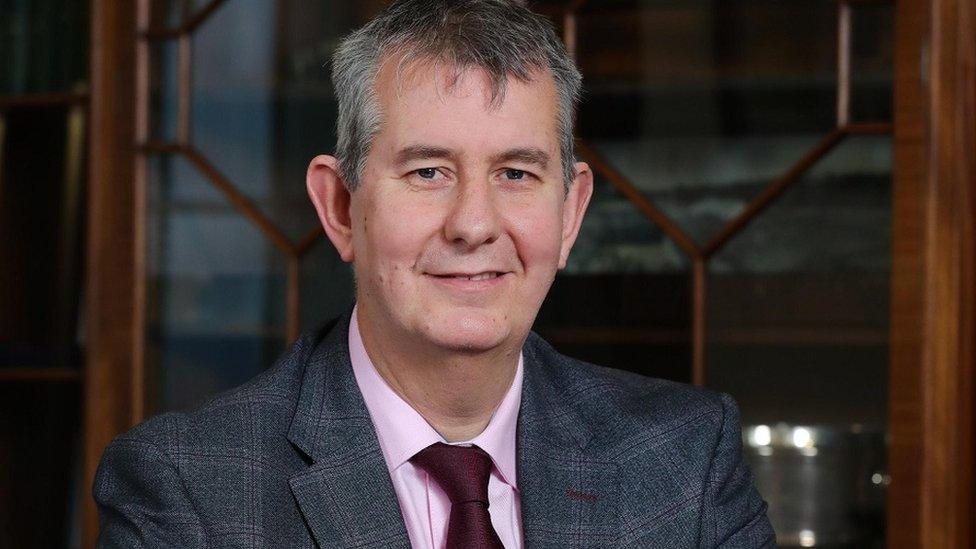
DUP MLA Edwin Poots is a former executive health minister
The minister: Edwin Poots
Who he is: DUP MLA and former health minister
Issues in his in-tray: Edwin Poots' new brief has two sometimes conflicting interests, which he will have to carefully balance.
As a farmer, he will have an unrivalled understanding of the needs of the industry.
The main issues there include tackling Bovine TB, dealing with the implications of Brexit for our key agri-food sector and guiding new post-Brexit farm support measures through the assembly in a Northern Ireland Agriculture Bill.
But he also now has responsibility for a raft of environmental issues which can be impacted by farming practices.
Tackling levels of ammonia emissions, improving water quality, cutting levels of greenhouse gases, reversing biodiversity loss will all potentially mean challenges for agriculture.
And the Stormont deal envisages new climate legislation and an independent Environmental Protection Agency for Northern Ireland.
They're both long-standing demands of environmentalists which have faced some resistance from farmers.
Given the importance of agriculture to the Northern Ireland economy and growing public awareness of environmental issues, this ministry will require deft handling.

Infrastructure
by John Campbell
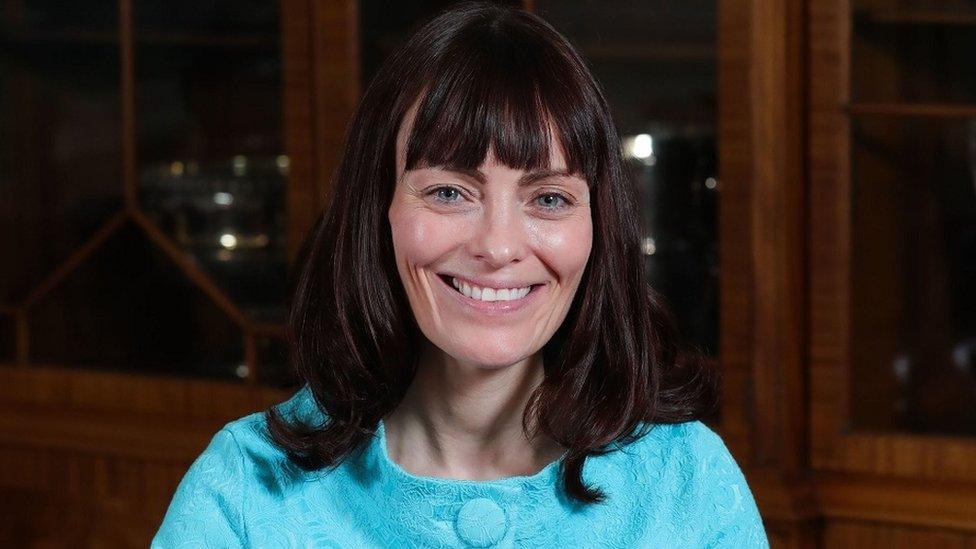
Nichola Mallon was elected as SDLP deputy leader in 2017
The minister: Nichola Mallon
Who she is: SDLP deputy leader and first-time Stormont minister
Issues in her in-tray: One of the biggest responsibilities for Nichola Mallon will be to make the final decision on regionally significant planning applications.
Applications in her in-tray include the North South Electricity Interconnector, a project which has been delayed for years.
The minister will also have to address the persistent underfunding of NI Water.
The publicly owned utility firm says it needs an additional £1bn to address wastewater, flooding and drainage problems in Belfast alone.
It has warned that new development in the city will not be possible unless the water system is also upgraded.
Domestic charges do not appear to be on the agenda, but ideas such as changing NI Water's legal status so it can borrow more could be.

Communities
by Robbie Meredith
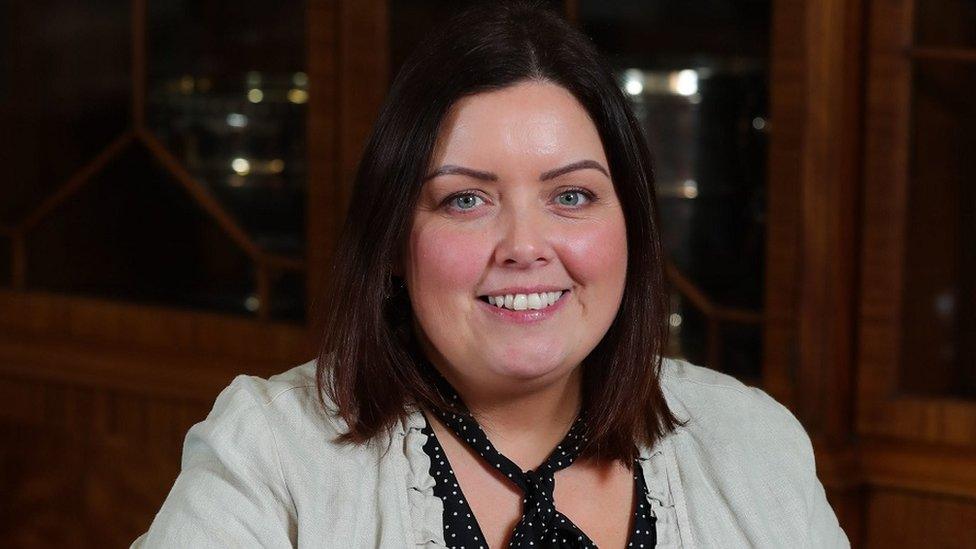
Deirdre Hargey is a former Belfast lord mayor
The minister: Deirdre Hargey
Who she is: Sinn Féin MLA who becomes an executive minister one month after being co-opted on to the assembly
Issues in her in-tray: At Communities, Deirdre Hargey has arguably the widest brief of any minister.
While mitigation payments for those affected by welfare reforms will be extended by the Stormont deal, she will be expected to iron out problems associated with Personal Independence Payments (PIPs), for example.
As minister for housing, it will be up to her to reduce waiting lists of those looking for a home and also to ensure the upgrade of existing Housing Executive properties - both of which will demand substantial funding.
In sport, Ms Hargey will be tasked with ensuring the new Casement Park is finally built.
She will also hope to avoid cultural controversies over things like marching bands and the Irish language which snared some of her predecessors, though as implementation of new language laws also involve the first and deputy first minister, difficult decisions will not be her responsibility alone.
And we should not forget the arts, where even the relatively meagre budgets which sustain many organisations have been squeezed in recent years.

If you are reading this page on the BBC News app, you will need to visit the mobile version of the BBC website to submit your question on this topic.
- Published12 January 2020
